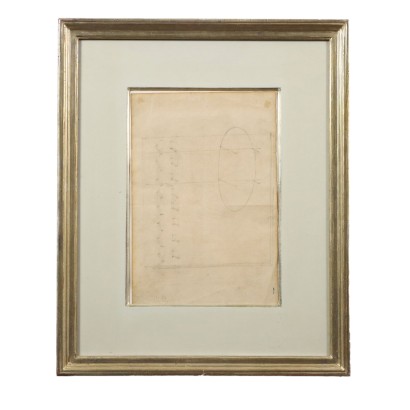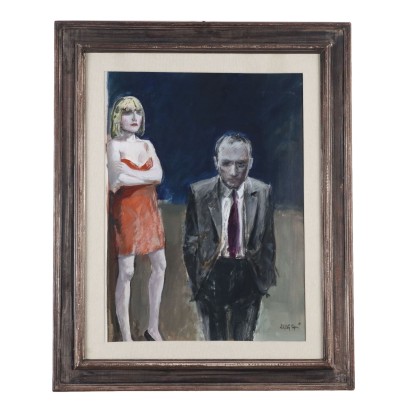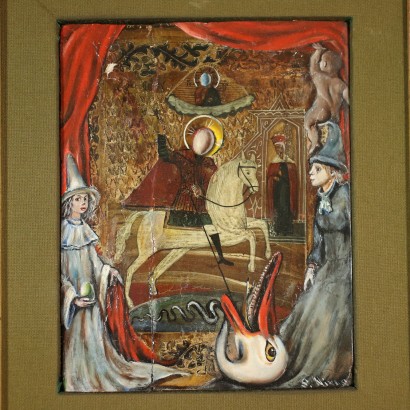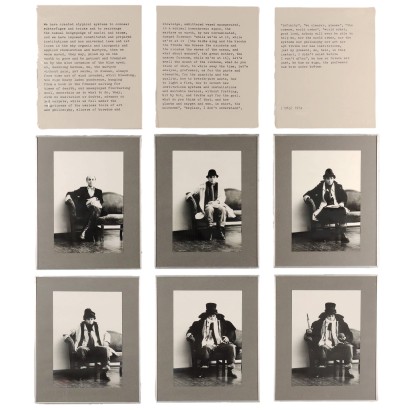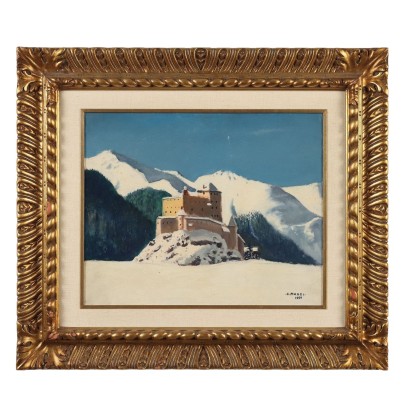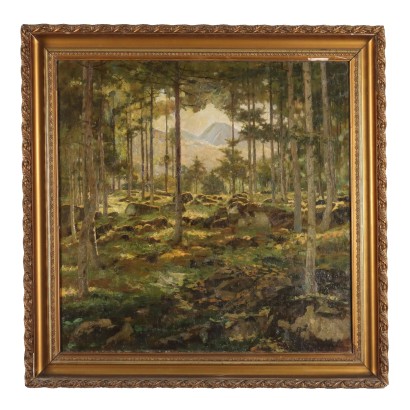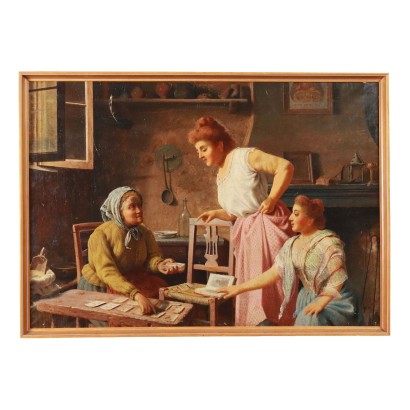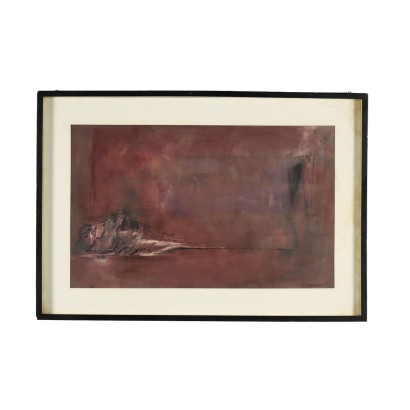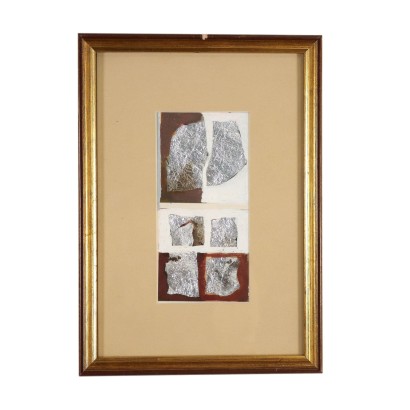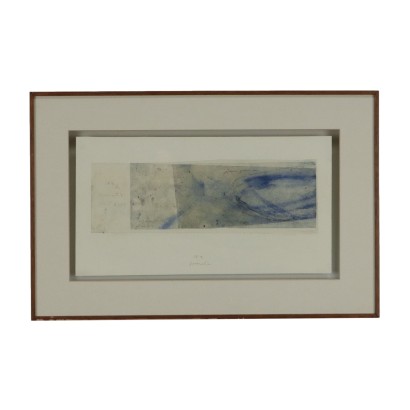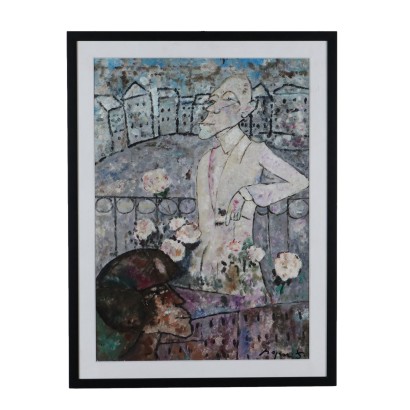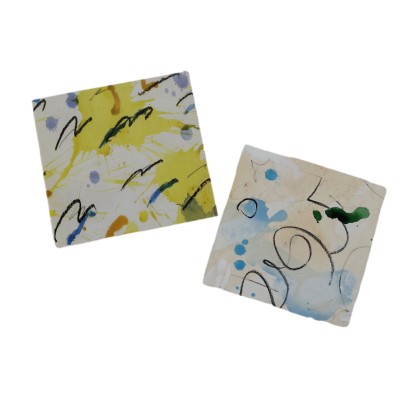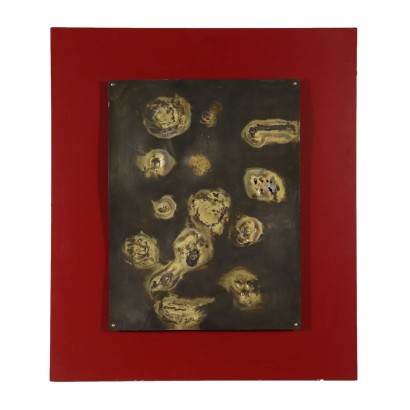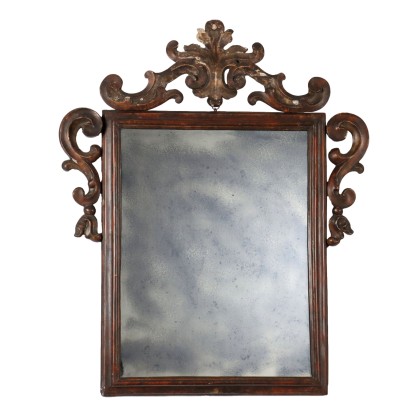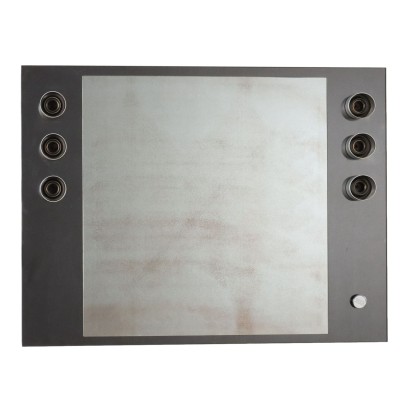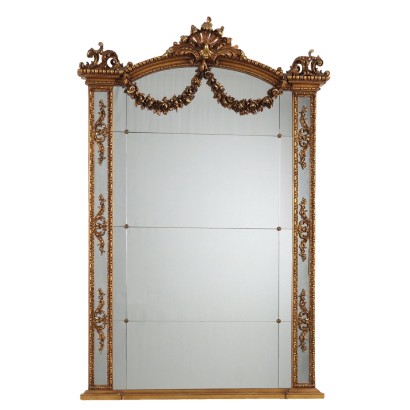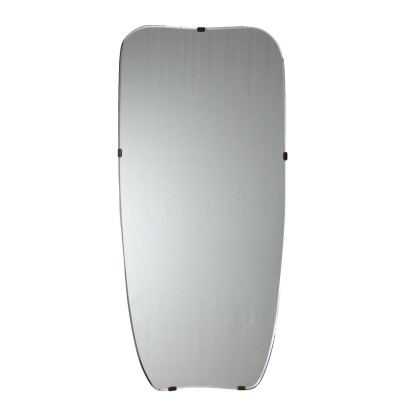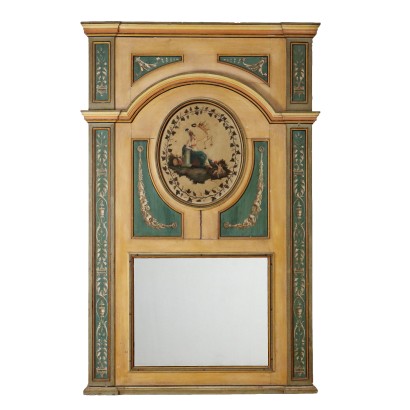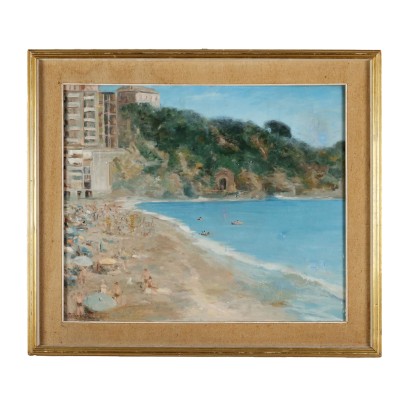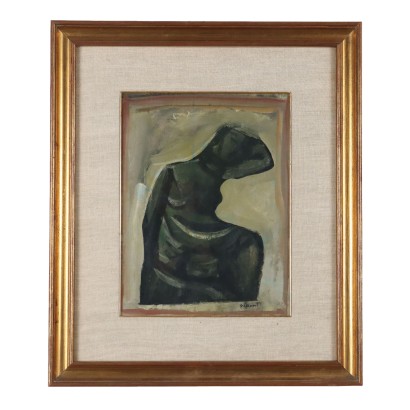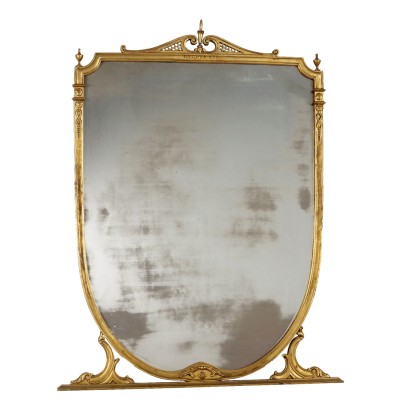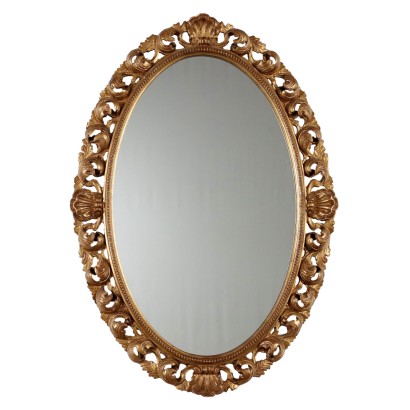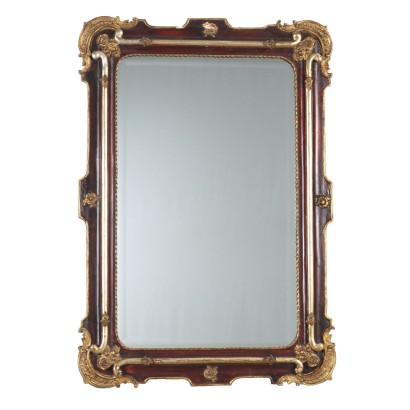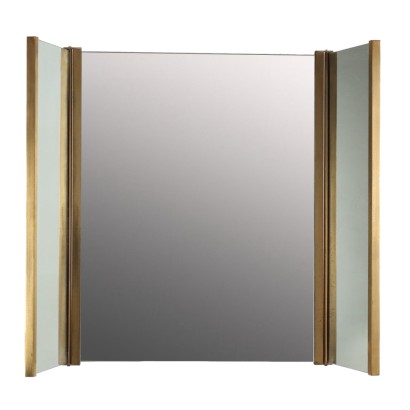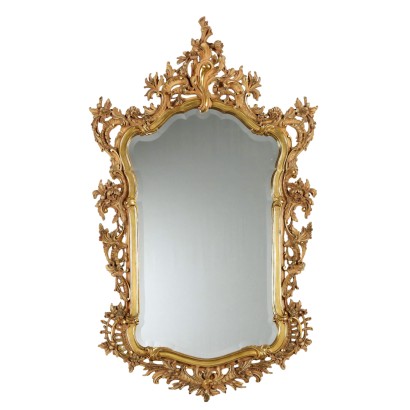Contemporary Drawing by Fausto Melotti Painting Pencil on Paper Frame - Sculpture project
Features
Sculpture project
Artist: Fausto Melotti (1901-1986)
Artwork title: Progetto per scultura
Age: Contemporary , 20th Century / 1901 - 2000
Subject: Abstract Composition
Artistic technique: Drawing
Technical specification: Pencil on Paper
Description : Progetto per scultura
Pencil on watermarked paper. Signed lower left. The drawing is accompanied by an authentication on photo from the Fausto Melotti Archive, with code DIS 36 015, showing the data of the work. Fausto Melotti was a multifaceted and very prolific artist and it is almost impossible to link his production to a particular technique or theme, without providing only a partial view of his artistic vision. The salient features that are constant in Melotti are geometry, the study of abstraction, which leads him to use realistic but not scientifically accurate elements, and arranging the elements so that they recall a musical rhythm, a detail that refers to his training as a musician Sculptor, painter, musician, poet, he made numerous design drawings for his works. Drawing represented for him a fundamental exercise, to transfuse the original graphic trait from sheets of paper into sculptures and ceramics. The sculptures for which he is best known are made up of geometric elements made with metals (brass, iron and gold) worked into thin filaments, giving life to ethereal, weightless and almost fragile compositions. The work is presented in a frame.
Product Condition:
Product in good condition, shows small signs of wear. We try to present the real state as fully as possible with photos. If some details are not clear from the photos, what is reported in the description will prevail.
Frame Size (cm):
Height: 52,5
Width: 43
Depth: 32,5
Artwork dimensions (cm):
Height: 32,2
Width: 21,4
Additional Information
Artist: Fausto Melotti (1901-1986)
Fausto Melotti was born in Rovereto (Trento) on 8 June 1901. In 1924 he graduated in electrical engineering, and in the same period he obtained a diploma in piano and began studying sculpture in Turin, with the sculptor Pietro Canonica. In 1928 he enrolled at the Brera Academy in Milan, where he was a pupil of Adolfo Wildt, together with Lucio Fontana, with whom he formed a long association. In 1932 he accepted the assignment from the Craft School of Cantù for a course in modern plastic. In 1935 "Kn" by Carlo Belli, cousin of Fausto Melotti, was published. The text, which is defined by Kandinsky as "the Gospel of abstract art", constitutes the theoretical elaboration of the experiments of the abstract artists who, together with Belli and Melotti, confronted each other at the Bar Craya in Milan. Indeed, in 1935 Melotti joined the "Abstraction-Création" movement, founded in Paris in 1931 by Van Doesburg, Seuphor, Vantongerloo with the aim of promoting and spreading the work of non-figurative artists. In the same year, together with the group of Milanese abstract artists, he took part in the first collective exhibition of abstract art in the studio of Casorati and Paolucci in Turin and exhibited in Milan at the Galleria del Milione in one of his personal sculptures of rigorously contrapuntal inspiration. His first exhibition has no comparison in Italy, but receives attention in France thanks to Léonce Rosenberg and in Switzerland where in 1937 he receives the international prize La Sarraz. In the same year, on the occasion of the VI Triennale di Milano, he created a key work, the Costante Uomo, for the Sala della Coerenza designed by the B.B.P.R. studio (Banfi, Belgiojoso, Peressutti, Rogers). From 1941 to 1943 he lived in Rome, where he participated in the project by Figini and Pollini for the Palazzo delle Forze Armate and in the meantime he made drawings, paintings and composed poems which, under the title "The sad Minotaur", were published by Giovanni Scheiwiller in 1944. In after the war he devoted himself to ceramics and achieved, through a very refined technique, a very high quality recognized by the numerous awards he received, including the Grand Prix of the Triennale in 1951, the gold medal in Prague and that of Munich. In this period he deepened a deep professional and human bond with Giò Ponti with whom he collaborated on two large projects for Villa Planchart in Caracas (1956) and Villa Nemazee in Tehran (1960). In 1967 he exhibited numerous sculptures of new inspiration at the Toninelli Gallery in Milan. From here begins a series of exhibitions in Italy and abroad that will quickly bring him success and allow the public to get to know his multifaceted activity: from sculptures to bas-reliefs, from theaters to works on paper, to ceramics. Florence, Rome, Venice but also New York, London, Zurich, Frankfurt and Paris dedicate extensive solo and group exhibitions to him. Melotti died in Milan on 22 June 1986 and in the same month the 42nd Venice Biennale of Visual Arts awarded him the Golden Lion in memory.Age:
Contemporary
Contemporary20th Century / 1901 - 2000
20th Century / 1901 - 2000Subject: Abstract Composition
Artistic technique: Drawing
Il disegno è il processo di tracciare segni su una superficie tramite l'applicazione di una pressione o il trascinamento di un apposito strumento sulla superficie. Gli strumenti sono: matite in grafite o colorate, penna, pennelli fini con inchiostro, pastelli a cera o carboncini; i supporti tradizionali più frequenti sono carta, cartoncino, tavola, muro, tela, rame, vetro.Technical specification: Pencil on Paper
Other customers have searched:
Se sei un appassionato d'arte, non perderti i nostri approfondimenti sul Blog Arte Di Mano in Mano e su FineArt by Di Mano in Mano - Arte:
Leggi di più
Ecco alcuni tra i principali articoli:Vedute
Falsi nell'arte antica
Un messaggio di fiducia per ripartire
La potenza espressiva dell'arte figurativa etiope
Breve Storia del Collezionismo
Giorgio Upiglio, maestro dei libri d'artista
Matthias Withoos detto "Calzetta bianca"
San Rocco pensaci tu - Classic Monday
Sapevi che l'arte può essere anche un ottimo investimento (e non solo per grandi portafogli)?
L'Arte tra Collezionismo e Investimento
FineArt: Arte come investimento
Dai un'occhiata alle nostre rubriche di divulgazione sull'arte:
Epoche
Lavorazioni e tecniche
Mostre ed Eventi
Protagonisti
Product availability
The product can be seen at Milan
Immediate availability
Ready for delivery within 2 working days from ordering the product.

